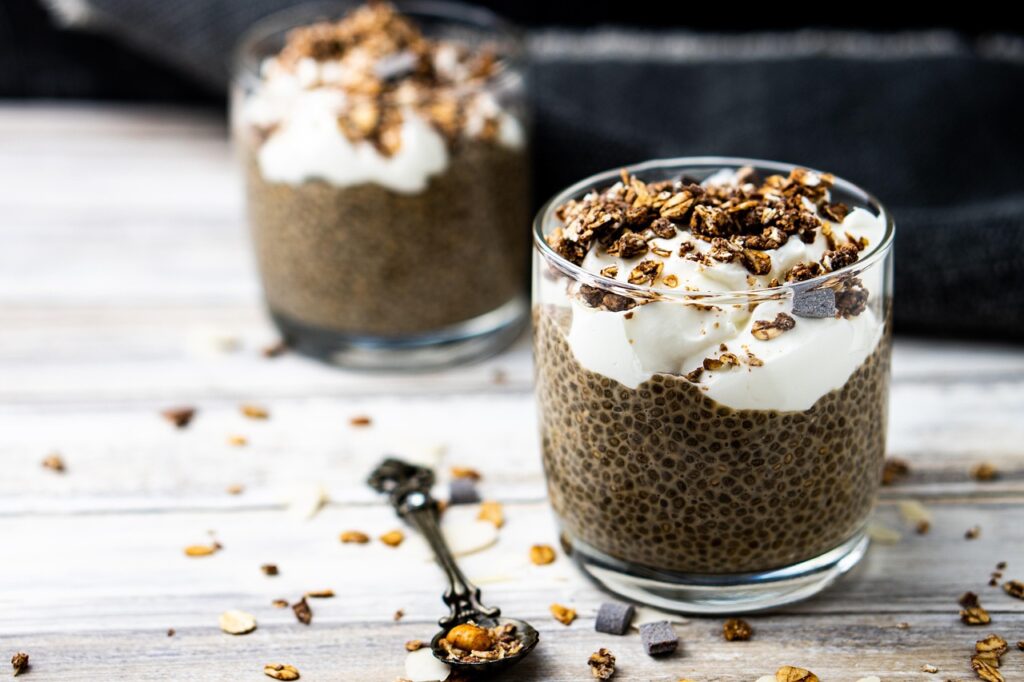Ever feel like your head is spinning from all the conflicting nutrition advice out there? One day, carbs are the enemy; the next, fat is public enemy number one. It’s tough to know what’s truly healthy when misinformation spreads faster than a viral meme, leaving us all guessing about what we should really be putting on our plates.
But here’s the thing: making healthful eating choices doesn’t have to be a mystery. Nutrition is a fascinating and crucial biochemical process by which our bodies use food and water to support life, providing the essential nutrients we need to thrive. It fuels our brains, builds our muscles and bones, protects our nerves, keeps our skin healthy, ensures good blood circulation, and bolsters our immune system, while also shielding us from a host of illnesses and diseases like heart disease, diabetes, cancer, and osteoporosis.
So, let’s cut through the noise and get down to brass tacks. We’re here to bust some of the most persistent nutrition myths out there, armed with credible, science-backed information, much of it powered by USDA Science from sources like Nutrition.gov. Get ready to ditch the confusion and embrace the facts, because understanding what truly nourishes your body is the ultimate game-changer!

1. **Myth: All Carbs Are Bad for You and Should Be Avoided**This myth has probably caused more dietary despair than any other. In the pursuit of health or weight loss, many people have been led to believe that all carbohydrates are inherently harmful, leading to unnecessary restrictions and a fear of foods that are actually vital for our well-being. It’s a simplistic view that ignores the complex and varied world of carbohydrates.
But let’s be clear: carbohydrates are fundamental macronutrients, serving as the body’s primary energy source. They are molecules that store significant amounts of energy, which our bodies digest and metabolize to keep everything running smoothly. Providing 4 calories per gram, carbohydrates are what fuel our daily activities, from thinking to exercising, and are especially abundant for herbivorous land animals, though essential for all.
Not all carbohydrates are created equal, and this is where the myth really falls apart. While some refined carbs might not offer much nutritional value, others, like those found in whole grains, are considered ‘superfoods’ for good reason. Whole grains are an excellent source of both soluble and insoluble fiber, along with essential B vitamins and various minerals. These types of carbohydrates have been demonstrably shown to lower cholesterol levels and protect against serious conditions like heart disease and diabetes.
So, instead of fearing all carbs, the real focus should be on choosing wisely. Opting for whole grains, fruits, and vegetables — which are natural sources of carbohydrates like glucose, the simplest form — means embracing foods that provide sustained energy and a wealth of health benefits. It’s about quality, not elimination, when it comes to keeping your body properly fueled and healthy.
2. **Myth: You Should Completely Cut Fat Out of Your Diet to Be Healthy**For decades, fat was demonized, leading to a proliferation of low-fat products and the misconception that banishing all fat from your diet was the express route to health. This ‘fat-free’ obsession, however, often led people to consume foods higher in sugar and refined carbohydrates, ironically contributing to other health issues while depriving their bodies of essential nutrients.
Here’s the truth: lipids, or fats and oils, are not just good for you, they are absolutely crucial macronutrients for life. Unlike carbohydrates, they are not soluble in water and have an incredible ability to store energy for extended periods, providing a dense 9 calories per gram. These vital substances can be obtained from a variety of plant and animal sources, playing a multifaceted role in bodily functions beyond just energy storage.
The key lies in understanding the *types* of fats we consume. The context highlights several healthy fat sources that are considered ‘superfoods’ due to their impressive health benefits. For instance, nuts like hazelnuts, walnuts, almonds, and pecans are rich in monounsaturated fats, which are believed to be a significant factor in reducing the risk of heart disease. Similarly, olive oil is celebrated for its vitamin E, polyphenols, and monounsaturated fatty acids, all contributing to a reduced risk of heart disease. And let’s not forget fatty fish such as salmon, mackerel, and sardines, which are packed with omega-3 fatty acids, crucial for heart health.
While the U.S. government’s Dietary Guidelines for Americans does recommend limiting saturated fat intake to less than 10% of daily calories, the message is not to eliminate all fat. Rather, it’s about making informed choices, prioritizing healthy fats from whole, unprocessed sources, and recognizing their irreplaceable role in maintaining a healthy body. Good quality fats are indeed your friends.
3. **Myth: Eating a Lot of Protein Will Automatically Build Muscle**Go to any gym, and you’ll likely hear someone advocating for massive protein intake, often with the belief that simply consuming more protein will directly translate into bigger muscles. While protein is undeniably important for muscle health, this widespread myth oversimplifies the complex physiological processes involved in muscle growth and often leads to an imbalanced dietary focus.
In reality, protein’s functions extend far beyond just muscle building. Once consumed, protein is broken down into its fundamental components, amino acids, which are then used by the body to synthesize new proteins. These new proteins are essential for forming cellular structures, creating vital fluids, and, critically, acting as enzymes. Enzymes are biological catalysts that are absolutely indispensable for most metabolic processes, as well as crucial functions like DNA replication, repair, and transcription, making protein a true workhorse in our bodies. Protein, like carbohydrates, provides 4 calories per gram.
While adequate protein intake is indeed a basic principle of healthy eating plans, focusing solely on consuming ‘a lot’ of protein without considering overall balance can be counterproductive. The context reminds us that over-nutrition of macronutrients, including protein, is a major cause of obesity. Furthermore, it significantly increases the risk of developing various non-communicable diseases, such as type 2 diabetes, stroke, hypertension, coronary heart disease, osteoporosis, and certain forms of cancer. It’s a delicate balance.
Instead of chasing extreme protein levels, the emphasis should be on obtaining *adequate* protein from high-quality sources as part of a balanced diet. The context specifically highlights that plant protein — found in delicious options like beans, lentils, soy foods, nuts, and seeds — along with fish, offer the most health benefits. It’s about nourishing your body with appropriate amounts of diverse protein sources to support all its intricate functions, rather than expecting a single nutrient to do all the heavy lifting for muscle development.
4. **Myth: All Calories Are the Same, Regardless of Where They Come From**The idea that ‘a calorie is a calorie’ often leads people to think that as long as they hit a certain number, the nutritional quality of their food doesn’t really matter. This simplistic approach to energy balance can be misleading, encouraging people to fill their diets with calorically dense but nutritionally empty foods, under the mistaken belief that only the total count matters.
It’s true that macronutrients—carbohydrates, protein, and fat—all provide energy, which is measured in kilocalories (commonly referred to as Calories). Each gram of carbohydrate and protein delivers 4 calories, while fat packs a more concentrated 9 calories per gram. However, the profound difference lies in how these calories impact our bodies beyond just their energy content. The context emphasizes that for good health, the *quality* of the food is often more important than whether it’s low-fat, low-carb, or somewhere in between.
Consider the stark contrast between ultra-processed foods and nutrient-dense options. Foods that undergo significant processing are notorious for causing weight gain and unhealthy shifts in blood sugar and cholesterol levels. This is largely because food processing often strips away vital nutrients while simultaneously adding excessive amounts of fats, sugars, sodium, and various artificial additives and preservatives. These calories might count towards your daily total, but they come at a significant cost to your overall health, offering little in return in terms of nourishment or protective benefits.
Conversely, ‘superfoods’ like berries, leafy greens, nuts, and whole grains pack a powerful nutritional punch. These foods, while providing calories, also deliver a wealth of vitamins, minerals, fiber, and healthful compounds called phytochemicals. These natural plant substances offer a range of benefits, including antioxidant, anti-inflammatory, and even anti-cancer activity. The source of your calories profoundly influences everything from satiety and energy levels to disease prevention and overall well-being. So, while a calorie *is* a unit of energy, the nutrient context around that calorie is what truly defines its impact on your body.
Read more about: Navigating the ‘Toxic’ Diet Fad: A Deep Dive into Gwyneth Paltrow’s Wellness Controversies and Expert Warnings

5. **Myth: Plant-Based Diets Are Difficult to Get Enough Protein From**One of the most enduring concerns for individuals considering a plant-based diet is the perceived difficulty in obtaining sufficient protein. This myth suggests that only animal products can provide adequate protein for human health, causing undue apprehension and deterring many from exploring the significant benefits of a plant-forward eating style.
However, this concern is largely unfounded, as the science overwhelmingly supports the fact that a well-planned plant-based diet can easily meet all protein requirements. The context clearly states that ‘adequate protein’ is one of the four basic principles common to all healthy eating plans, emphasizing its universal importance regardless of dietary style. It also highlights that there are ‘many protein sources’ available to us.
Indeed, the wealth of protein in the plant kingdom is often underestimated. The context specifically identifies several plant-based ‘superfoods’ that are excellent protein sources. Nuts, including hazelnuts, walnuts, almonds, and pecans, are highlighted as ‘good plant protein sources.’ Similarly, the broad category of legumes—which encompasses kidney, black, red, and garbanzo beans, soybeans, and peas—is lauded as an ‘excellent source of fiber, folate, and protein.’ Studies have even shown that regular consumption of legumes can help reduce the risk of heart disease.
Further reinforcing this point, the context explicitly states that ‘plant protein (beans, lentils, soy foods, nuts, seeds) and fish offer the most health benefits’ when discussing adequate protein intake for older adults. This directly counters the myth by affirming that plant-based protein sources are not only sufficient but often superior in their overall health contributions. Embracing a diverse array of plant foods ensures a complete and robust protein intake, making this myth one that can confidently be put to rest.

6. **Myth: You Don’t Need to Worry About Nutrition Until You’re Older**There’s a common, yet dangerous, misconception that good nutrition is primarily a concern for older adults or those facing health issues. This mindset often leads younger individuals to take their health for granted, making less optimal food choices under the assumption that their bodies can simply bounce back, only to find themselves grappling with nutrition-related problems later in life.
The truth is, nutrition is a lifelong commitment, essential from day one. Good nutrition is the very foundation upon which our bodies operate. It’s what helps to fuel every system, supplying the critical nutrients needed to maintain the health of our brain, muscles, bones, nerves, skin, blood circulation, and immune system. Beyond just maintenance, proper nutrition actively protects us from a wide array of illnesses and diseases, including heart disease, diabetes, cancer, and osteoporosis, benefits that are relevant at *every* stage of life.
While it is absolutely true that ‘proper nutrition becomes even more important after men and women reach age 50,’ helping to keep energy levels up and safeguarding against many age-related illnesses, this doesn’t diminish its critical role earlier on. The definition of nutrition itself—’the biochemical and physiological process by which an organism uses food and water to support its life’—underscores its continuous, fundamental importance. Our bodies are constantly undergoing metabolic processes, repairing, and growing, all of which demand a steady supply of nutrients.
Ignoring nutrition in younger years can set the stage for future health challenges. Both nutrient deficiencies, leading to conditions like anemia or scurvy, and nutrient-excess conditions, such as obesity and metabolic syndrome, can cause bodily harm at any age. A balanced diet, rich in essential and non-essential nutrients, is therefore not an option but a necessity throughout our entire lifespan. It’s about building a strong foundation, not just patching things up when problems arise later.

7. **Myth: Taking a Daily Multivitamin is Essential for Everyone**Many of us have a bottle of multivitamins in our pantry, taken with the best intentions, believing it’s a non-negotiable part of a healthy routine. The narrative often suggests that modern diets are inherently lacking, making daily supplementation a necessary safeguard for everyone to fill supposed ‘nutritional gaps.’ However, the scientific evidence paints a more nuanced picture than this popular belief would suggest.
The fact is, for ‘the average healthy adult, eating a balanced diet with plenty of fruits and vegetables provides all the essential vitamins and minerals.’ The context clearly states that there is ‘limited evidence they offer significant health benefits or help protect against disease’ for this general population. A diet rich in whole, nutrient-dense foods is typically sufficient to supply the body with everything it needs, rendering routine supplementation for healthy individuals largely unnecessary.
However, there are crucial exceptions where dietary supplements can play a vital role. These situations include individuals diagnosed with a specific vitamin deficiency, which should be confirmed by a blood test. Furthermore, those who have trouble getting certain vitamins from foods—such as strict vegans who may not get enough vitamin B12, or individuals with digestive disorders like Crohn’s disease, celiac disease, and ulcerative colitis, which hinder nutrient absorption—might genuinely need supplementation. Conditions requiring extra vitamins or minerals, like osteoporosis necessitating additional vitamin D and calcium, or lactose intolerance impacting vitamin D and calcium intake, also warrant consideration.
While doctors may hold differing opinions, ranging from ‘not necessary’ to a ‘might-help-won’t-hurt’ approach, the consensus for most healthy individuals leans towards prioritizing whole foods. It’s also vital to be aware of how supplements are regulated: the FDA monitors ‘disease-related claims on dietary supplement labels’ but *does not ensure whether a product contains the ingredients listed on its label.* This means consumers must exercise caution and, crucially, ‘first check with your doctor’ to determine if a supplement is truly needed and to select a reputable brand, rather than blindly assuming a daily pill is a universal health panacea.

8. **Myth: All “Superfoods” Are Magical and Indispensable**We’ve all seen the headlines: “Eat This One Superfood to Live Forever!” It’s easy to fall for the allure of “superfoods,” believing they hold some mystical power to single-handedly transform our health. This myth often leads to an overemphasis on a few select items, potentially overlooking the broader picture of what truly makes a diet healthy and balanced.
Now, don’t get us wrong, certain foods *are* nutritional powerhouses! The science backs this up, highlighting that while most foods in plant-based diets offer important health benefits, some truly stand out. Think berries, bursting with fiber and antioxidants, or fatty fish like salmon, mackerel, and sardines, fantastic sources of omega-3 fatty acids crucial for heart health. Leafy greens, nuts, and olive oil are also celebrated for their rich vitamin content, beneficial fats, and powerful phytochemicals.
Whole grains, packed with soluble and insoluble fiber, along with essential B vitamins and minerals, are considered ‘superfoods’ for their ability to lower cholesterol and guard against heart disease and diabetes. Even yogurt, with its calcium, protein, and beneficial probiotics, earns its spot. And let’s not forget cruciferous vegetables or legumes, offering fiber, folate, protein, and cancer-fighting phytochemicals. These foods certainly deliver an incredible nutritional punch.
However, the “magic bullet” idea is where the myth trips up. No single food, no matter how potent, can provide all the nutrients your body needs, nor can it undo the effects of an otherwise unhealthy diet. The real game-changer isn’t about isolating a few “superfoods” but integrating a diverse array of nutrient-dense options into your daily meals. The Harvard Healthy Eating Plate, for instance, visually guides us to fill half our plate with a variety of vegetables and fruit, showing it’s about proportions and diversity for sustained well-being.

9. **Myth: Avoiding All Processed Foods Is Always Best for Your Health**In our quest for healthier eating, “processed food” has become a dirty word, often leading to the misconception that anything that has undergone *any* form of processing should be banished entirely. This common belief lumps all foods not straight from the farm into one unhealthy category, creating unnecessary dietary stress and sometimes leading to restrictive eating patterns that aren’t actually beneficial.
Here’s the deal: our context clearly highlights genuine concerns surrounding *ultra-processed foods*. These are the ones that truly cause weight gain and unhealthy shifts in blood sugar and cholesterol levels. Why? During their extensive processing, vital nutrients are often stripped away, only to be replaced with excessive amounts of fats, sugars, sodium, and artificial additives. So yes, minimizing these heavily altered items is definitely a smart move for your well-being.
But let’s hit the pause button on the blanket ban. Not all processed foods are created equal! Many common food processing methods are actually essential and beneficial for our food supply. Think drying, freezing, heating, milling, pressing, packaging, refrigeration, and irradiation—all forms of processing that improve food safety, quality, and help preserve nutritional content. Without these methods, access to many healthy foods would be significantly limited.
The key isn’t to avoid every food that has seen a factory wall, but to prioritize *minimally processed foods*. A fundamental principle of healthy eating plans is to focus on options with little to no industrial alteration, retaining their natural nutrient profiles. Empower yourself to distinguish between the truly beneficial and the genuinely detrimental, opting for whole, real foods prepared for consumption or preservation.
Read more about: Is Your Bank Account Leaking Money? The 14 Sneaky Hidden Fees You’re Probably Paying (and How to Stop Them!)

10. **Myth: Natural Sugars Are Always Healthier Than Added Sugars**”It’s just fruit sugar!” “Honey is natural, so I can have as much as I want!” This common myth suggests that sugars found naturally in foods like fruit or natural sweeteners are inherently superior and can be consumed without restraint, unlike “evil” added sugars. While there’s a kernel of truth that some sugar sources are better than others, the blanket assumption that “natural” means “unlimited healthy” can lead to overconsumption.
Let’s clear the air: all sugars, whether from an apple or a candy bar, are ultimately broken down into glucose, the body’s primary energy source. Carbohydrates, which include sugars, are molecules that store significant amounts of energy, providing 4 calories per gram. Our bodies digest and metabolize them to keep us running. From a purely metabolic standpoint, sugar is sugar once it hits your bloodstream.
The crucial difference isn’t the sugar molecule itself, but what comes *with* it. When you eat a whole apple, you’re not just getting fructose; you’re also getting fiber, vitamins, minerals, and healthful phytochemicals. This incredible package helps regulate how quickly the sugar enters your system, offers satiety, and delivers a wealth of other health benefits. It’s this nutritional context that makes natural sugar sources from whole foods a vital part of a healthy diet.
However, when it comes to “added sugars,” the story changes. These are sugars *added* during food processing, often without any accompanying beneficial nutrients. The U.S. government’s Dietary Guidelines for Americans explicitly recommend limiting “added sugars (sugars added during processing).” Why? These empty calories contribute to over-nutrition without providing much nourishment. Enjoy your whole fruits, but be mindful of *all* sources of sugar, especially those “added” varieties that sneak into so many everyday foods.
Read more about: Why What You’ve Heard About Breakfast Might Be Wrong: A Deep Dive into Skipping and Its Surprising Health Realities

11. **Myth: Diet Is Everything; You Don’t Need Exercise for Optimal Health**It’s a tempting thought, isn’t it? That simply by eating perfectly, we can sidestep the need for physical activity and still achieve peak health. This myth, often perpetuated by extreme diet trends, suggests that diet alone is the sole determinant of our well-being, diminishing the vital role that movement plays in a truly holistic approach to health. It promises an easy way out, but our bodies need more than just good food to thrive.
Without a doubt, nutrition is absolutely foundational. It’s “the biochemical and physiological process by which an organism uses food and water to support its life,” fueling our brains, building our muscles and bones, protecting our nerves, keeping our skin healthy, and bolstering our immune system. Proper nutrition actively shields us from serious illnesses like heart disease, diabetes, cancer, and osteoporosis. So yes, what we put on our plates is paramount.
Yet, ignoring movement is like trying to build a house with only half the necessary materials. Our context, through resources like Nutrition.gov, clearly highlights “Exercise and Fitness” as a crucial component of overall health. It encourages learning about physical activity benefits and provides tools like exercise logs and planners to help people stay consistent. This inclusion signals that physical activity is not just an optional add-on, but an integral part of maintaining a healthy body.
The reality is that nutrition and exercise work hand-in-hand, creating a powerful synergy that neither can achieve alone. While diet helps build and fuel the body, physical activity strengthens our cardiovascular system, builds lean muscle, improves mood, and enhances metabolic health in ways that food alone cannot. For optimal health, energy, and protection against disease, embracing both healthful eating choices and consistent physical activity is truly the winning combination.

12. **Myth: It’s Too Late to Start Eating Healthy Once You’re Older**This is a really disheartening myth many people unfortunately internalize: the idea that once you hit a certain age, your dietary habits are set in stone, and any efforts to eat healthier are simply futile. It suggests that the damage is already done, or that the benefits of making positive changes diminish significantly as the years go by. This kind of thinking can prevent countless individuals from improving their quality of life during their golden years.
But let’s be crystal clear: nutrition is a *lifelong* commitment, and it absolutely makes a difference at *every* age! Good nutrition is the very foundation upon which our bodies operate, constantly supplying the critical nutrients needed to maintain our brain, muscles, bones, nerves, skin, blood circulation, and immune system. These benefits aren’t exclusive to youth; they are relevant and vital at *every* stage of life, actively protecting us from a wide array of illnesses and diseases.
Indeed, the context explicitly states that “Proper nutrition becomes even more important after men and women reach age 50.” This isn’t just a casual observation; it’s a scientific truth emphasizing that focusing on your diet later in life is crucial for keeping energy levels up and safeguarding against many age-related illnesses and conditions such as heart disease, cancer, and diabetes. It literally helps you age more gracefully and healthfully.
The core principles of healthy eating, like embracing “Lots of plants,” ensuring “Adequate protein,” choosing “Minimally processed foods,” and limiting “Limited saturated fats, added sugars, and sodium,” are universal guidelines that remain relevant throughout our entire lifespan. It’s never too late to adopt these principles. Making informed and positive changes to your diet at any age can significantly impact your current health and future well-being, proving that healthy eating is always a worthwhile investment.

13. **Myth: There’s One Perfect Diet That Works for Everyone**Raise your hand if you’ve ever felt overwhelmed by the sheer number of “best diets” out there. Keto, paleo, low-fat, high-carb, Mediterranean—the list goes on! This often leads to the myth that somewhere out there exists a single, universally “perfect” diet that everyone should follow for optimal health. It’s a tempting idea, promising a one-size-fits-all solution, but the reality is far more nuanced and, thankfully, more flexible.
It’s true that science has pointed us toward some incredibly effective dietary patterns. Our context highlights that “science supports following a plant-based diet like the Mediterranean-DASH (Dietary Approaches to Stop Hypertension) diet, and MIND (Mediterranean-DASH Diet Intervention for Neurodegenerative Delay) diet.” These diets have been demonstrably linked with a lower risk of heart disease, cancer, and other chronic illnesses, showcasing the immense power of whole, plant-rich foods.
However, the idea of a *single* perfect diet for *everyone* simply isn’t accurate. The context emphasizes this directly, stating, “There is no single way to eat for good health.” While we all require essential macronutrients—carbohydrates, fat, and protein—there’s “no ‘magic’ ratio that you should strive for as long as you avoid extremes.” What truly matters most, research suggests, is the *quality* of the food we consume, rather than rigidly adhering to a specific macronutrient breakdown.
The four basic principles common to *all* healthy eating plans provide a much better framework than chasing a mythical perfect diet. These include prioritizing “Lots of plants,” ensuring “Adequate protein” (especially from plant and fish sources), opting for “Minimally processed foods,” and being mindful of “Limited saturated fats, added sugars, and sodium.” These adaptable guidelines empower individuals to make healthful choices aligning with their personal preferences, cultural backgrounds, and specific health needs.
14. **Myth: Nutritional Advice from Food Labels Is Unreliable and Can Be Ignored**How many times have you glanced at a food label, sighed, and then tossed the product into your cart without a second thought? There’s a persistent myth that food labels are either too confusing, designed purely for marketing spin, or simply too unreliable to be taken seriously. This skepticism, while sometimes rooted in valid concerns about misleading claims, can lead people to miss out on valuable information that could genuinely guide healthier choices.
Let’s clear up some of the fog. Food labels in the U.S. are actually built upon established references, specifically using Daily Reference Values (DRVs). These DRVs are not just arbitrary numbers; they are a combination of nutrient references designed to educate professionals and policymakers on the maximum and minimum nutrient intakes for the average person. Crucially, “Food labels also use DRVs as a reference to create safe nutritional guidelines for the average healthy person.” This means they offer a standardized baseline to help you understand a product’s nutrient content.
Now, it’s important to differentiate. While the FDA monitors “disease-related claims on dietary supplement labels,” it’s true that the agency “does not ensure whether a product contains the ingredients listed on its label” for supplements. This distinction is critical and often fuels the broader skepticism about *all* labels. However, for most packaged *foods*, the information provided on the Nutrition Facts panel is intended to be a factual representation of what’s inside, allowing for more informed consumer decisions.
Ultimately, instead of dismissing them, viewing food labels as a tool can empower you. They offer a quick snapshot of calories, macronutrients, and key micronutrients, helping you compare products and choose options that better align with your health goals. While a label is just one piece of the puzzle, understanding how to read and interpret it effectively—and knowing the difference between food and supplement regulations—is a powerful step toward making credible, science-backed healthful eating choices.
And there you have it, folks! We’ve journeyed through 14 of the most stubborn nutrition myths, peeling back the layers of misinformation to reveal the science-backed truths. From the power of diverse plant foods to the crucial role of all macronutrients (in the right forms!), and the importance of lifelong commitment to health that extends beyond just diet, we hope you’re feeling more confident and less overwhelmed. Remember, making healthful eating choices doesn’t have to be a mystery. Armed with credible information, you’re now ready to navigate your plate with clarity, nourish your body with intention, and truly transform your well-being. Here’s to cutting through the noise and embracing a lifetime of smart, joyful eating!








